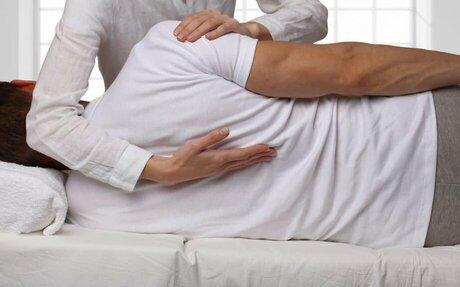Some Reasons Why You Should Stop Cracking Back And Neck

The popping sound as you stretch your joints a certain way is one of the most pleasant feelings. You can feel the stiffness and tension leave your joint. But cracking your back or neck could cause issues for which you need spinal decompression in Denver.
The popping sound isn’t actually the sound of something cracking. It’s usually the sound of gases like nitrogen, oxygen and carbon dioxide being released from the joints. In some cases, it’s caused by the grinding of arthritic joints.
Cracking your knuckles is considered safe with no link to arthritis. You can also crack your knees and ankles if they don’t hurt.
But popping your neck and/or back could become troublesome. It’s okay to crack the back once in a while or if it happens on its own. But using too much force or doing it too often can be dangerous. Here’s why you don’t want to make it a habit:
Ligament Laxity
As mentioned, cracking your back and neck could overstretch the ligaments, a condition called ligament laxity. This causes the joints to become very loose over time. It’s often accompanied by hypermobility, pain, numbness, tingling and muscle spasms. You may dislocate or injure your joint frequently. The joint may also click or crack.
If it doesn’t cause pain, you may not need treatment. Else, you may need to visit an accident and injury clinic in Denver for physical therapy. You should avoid twisting your back and neck often beyond their ability to move.
Pinched Nerves
The spinal column is surrounded by many nerves and contains many of them. Using too much force while cracking your back might pinch these nerves. This can be very painful and limit your movement considerably in many cases.
Misalignment
In some cases, cracking your back or neck could cause spine misalignment. This can lead to immobility, so it’s smarter to leave your spine alone.
Muscle Tears
There’s a risk of overstretching the back muscles when you try to pop it. This can cause muscle tears accompanied by pain, swelling, muscle spasms and limited ability to move. Heat and cold treatment may work in some cases while chiropractic may be needed in others.
Slipped Discs
While the chances are low, it’s possible to suffer a slipped disc while cracking your back. You may also aggravate an existing one. A slipped disc occurs when the outer ring is damaged allowing the inner ring to slip through.
In many cases, it causes no symptoms due to which you may miss it. In others, you may experience pinched nerves, and pain, numbness or weakness in an arm or leg. Muscle weakness and spasms are also common.
Stroke
Cracking your neck often increases the risk of a stroke. Your neck is surrounded by many delicate blood vessels, some of which go to the brain. Popping your neck may damage these blood vessels and cause blood clots that block the blood flow to the brain. Soreness or stiffness in the neck, headache and fatigue are common symptoms of damage to arteries in the neck.
You should watch out for symptoms of a stroke like numbness or weakness in one side of the face, severe headache, confusion, dizziness, trouble walking, vision problems or slurred speech.
Tightness
Incessant cracking may not cause arthritis. But it can lead to joint stiffness due to the muscles trying to stabilize them. This can create a cycle because more tightness creates a bigger urge to crack the joints.
These are some reasons why you shouldn’t crack your back or neck too often or forcefully. In many cases, the urge to crack your back could be a symptom of an underlying problem. It’s worth getting yourself checked by a chiropractor to diagnose and treat the issue before it flares up.
Instead of cracking, you can try stretches or massages to treat soreness. You can also try heat and cold treatment or OTC pain relievers.
Post Your Ad Here
Comments